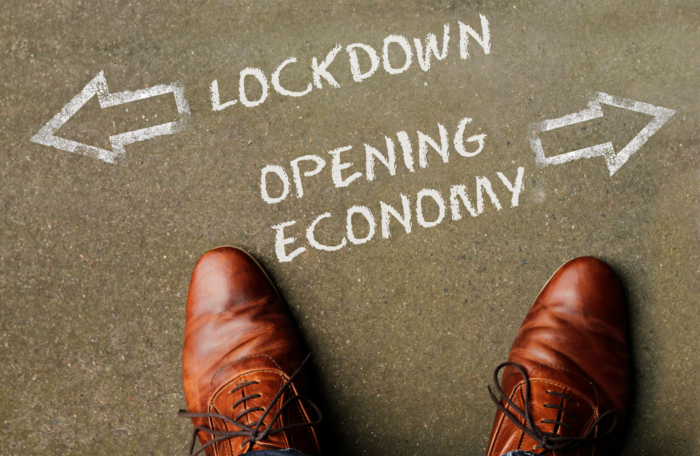Five guidelines for reopening New Hampshire’s economy
New Hampshire’s economy spent March and April of 2020 rapidly contracting. Cell phone data and reported restaurant and retail store revenue show that consumers voluntarily began staying home in the early March. Then on March 27 the governor issued a stay-home order and ordered “non-essential” businesses closed to in-person interactions.
That one-two punch put nearly 160,000 Granite Staters out of work in a matter of weeks. The state’s unemployment rate rose from less than 3% in March to approximately 15% in April, according to state figures released this week.
Those numbers are not just statistics on a financial spreadsheet. Each application for unemployment benefits represents a real person who has been made idle involuntarily.
Those Granite Staters — our friends, neighbors, and family members — have lost the ability to provide for themselves and their families. Some of their employers have stayed open with skeleton crews, some have closed temporarily, some permanently.
New Hampshire’s economy is in serious long-term danger because roughly 96% of New Hampshire businesses are small businesses. Small businesses tend to have low cash reserves. A JP Morgan Chase study of nearly 600,000 small businesses in 2015 found that the median small business holds less than one month’s worth of cash reserves. A quarter hold less than two week’s worth. If small businesses remain closed by state order much longer, many won’t survive.
Again, that’s not just a financial story. It’s a human one. Businesses provide the goods and services people need, and the revenue businesses generate pays the rent, the mortgage, the grocery bills, the gas bills, etc., for all of their employees.
Free economic exchange is not a luxury to be disregarded in times of crisis. It is how Americans feed, clothe, and shelter themselves. It is how most of us define who we are. It is how people generate the business profits that fund scientific research and the tax payments that fund government services. It is, by itself, essential for the creation and maintenance of any prosperous and healthy society.
Getting people back to work, then, ought to be an urgent priority for state and local policymakers.
The government has a vital role to play in minimizing the possibility that a deadly new disease will overwhelm our health care system. But achieving that goal can and should be done in a way that produces the smallest possible negative impact on the economy. Here we suggest five ways to achieve both of those important goals.
To reopen the economy with minimal risk to the health care system, government policy should follow five guidelines:
- Exercise the minimum intervention necessary
- Focus on safe practices, not categories of businesses
- Enable innovation and adaptation
- Reduce costs and burdens on employers & business owners
- Prioritize information and flexibility over control
Read the full report here: JBC Reopen Report




I posted a comment on May 1. It is now almost May 6, and it still says my comment is awaiting moderation. I haven’t noticed that it taken this long before. Can anyone tell me what the holdup might be?
It now appears my original comment has reappeared on my screen and I am now being shown there are two of my comments in the queue “awaiting moderation.” Maybe the delay is due to some links I think are important, which the mainstream media will not talk about. I will remove them to try to get the rest of my comments posted and hope the links will eventually be approved and listed. Meanwhile, here is the content of my original comment:
We have government officials that continue to get paid, no matter what, making decisions about things they don’t understand, for everyone else, as if we can’t consider the risks and make our own choices.
Teachers, whether actively teaching or not, will still get their paychecks. As far as I can tell, all tax-funded employees will still get paid. (Correct me if I’m wrong.) Yes, government employees have it made – a guaranteed income, even if everyone else is out of work.
I am incredulous that Americans are sitting back and accepting this craziness. People are petrified and cowering in fear while the media and the government keep everyone hyped up.
Where is the ACLU? Aren’t they supposedly the grand protectors of civil rights? (a bit of sarcasm here…)
Does anyone in New Hampshire still believe in “Live Free or Die”? How can it be that so many are allowing the government to dictate to them? Where are the men?
This is like a medical inquisition. People are calling the police on other people over quarantining. People seem to be afraid to even look at other people in stores, apparently for fear they might become infected.
I am wondering if we will now be what I am calling a “Howard Hughes nation.” Or maybe a “paranoiation.”
It’s time to stand up and challenge the dictates from on high.